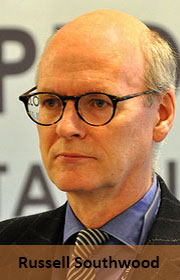 SpectraLink Wireless, with help from Facebook and Microsoft, has rolled out broadband coverage using television white spaces (TVWS) across campuses at All Nations University College and Koforidua Polytechnic in Koforidua, Ghana. The spectrum being used has been licensed by Ghana’s regulator, NCA, as part of a pilot.
SpectraLink Wireless, with help from Facebook and Microsoft, has rolled out broadband coverage using television white spaces (TVWS) across campuses at All Nations University College and Koforidua Polytechnic in Koforidua, Ghana. The spectrum being used has been licensed by Ghana’s regulator, NCA, as part of a pilot.
SpectraLink Wireless is supplying its Edutech-as-a-Service platform to the pilot project. The platform will ensure “students and faculty have access to the best productivity applications on the market and Internet access at true broadband speeds”, said SpectraLink CEO John Sarpong.
This TVWS pilot is part of Microsoft’s 4Afrika Initiative, which aims to improve the continent’s competitive positioning by facilitating technology access. The pilot in Ghana brings to 10 the number of countries worldwide where Microsoft is involved in TVWS projects. There are seven trials in Africa, one of which was run with support from Google in South Africa. Nigeria is about to issue several licences to trial TVWS.
At the African Telecommunications Union Digital Migration Summit last week in Nairobi, there was a session on TVWS at which Prof H Nwana of the Dynamic Spectrum Alliance argued one side of views on the topic, with the International Telecommunication Union (ITU), Ericsson and a member of Kenya’s regulator, CCK, arguing the other. Those against TVWS argued it is not a good technology for the continent and that it does not do what has been promised.
In a session in which those against the technology threw up every possibly argument against TVWS, it is perhaps fairest to summarise some the main ones:
— TVWS may not work and more studies are needed. This is the most irritating of the arguments put forward given that the first South African pilot worked extremely well in the spectrum-crowded environment of Cape Town. Also, no one has yet produced evidence from other pilots to show they don’t work as promised. If they don’t work in Africa, show the evidence.
— TVWS does not have a business model. This argument is true, but it’s hard to see why the ITU should insist something has a business model. The technology has to find its business model or fail, which it will do by being given space alongside other technologies.
— TVWS doesn’t solve the digital divide, only fixed lines can do that. It’s true, TVWS by itself doesn’t solve the digital divide, but it does address the shortfall in local access in urban areas and it does address rural area coverage as a pilot in Kenya has ably demonstrated.
— TVWS didn’t generate much extra spectrum. The argument there is that reallocation of spectrum is much more likely to lead a better outcome. If spectrum is scarce, as we are constantly told, then any amount is a bonus. Except in a handful of countries in Africa, this argument is irrelevant because Africa currently has plentiful spectrum.
— Changes in guard-band spectrum might destroy the TVWS equipment ecosystem. Again, why should those against it worry about this? It’s a risk that grown-ups take with their own rather than government money. A new tri-band chipset from Mediatek (2,4GHz, 5,8GHz and TVWS in one chipset) is due out early next year.
The alternative proposed by those against TVWS was that mobile operators could lease out spectrum they are not using on condition it can be reclaimed when needed. This did not sound like a winning alternative for anyone wanting to run a business, but does keep control in the hands of the new “incumbents”, the mobile operators.

Those against were an alliance of the ITU, a big equipment manufacturer and a conservative voice within an African regulator. When I see this kind of alliance, something comes over me and I start to feel that if they are against it, there must be merit in the idea. So please tell me if I’m wrong.
The Dynamic Spectrum Alliance’s Nwana — a Cameroonian who was formerly responsible for UK regulator Ofcom’s roll-out of TVWS — said at the Nairobi summit: “Economic regulation mandates you look at all trials in a way that will provide broadband capacity. Access and affordability must be at the top of your mind.”
Once 4G/LTE spectrum is available, it will only reach a certain percentage of the population, the addressable commercial audience: “There is a need for satellite and TVWS in rural areas. In terms of the tools — satellite, 4G, TVWS — a regulator needs all of them,” Nwana said.
“The sheer scale of Africa and its low population density means that you need a different spectrum policy for Africa, one that addresses these kinds of realities. In 10 years’ time, we want dynamic access, using things like TVWS, to be the norm rather than the exception.”
- Russell Southwood is head of Balancing Act Africa

